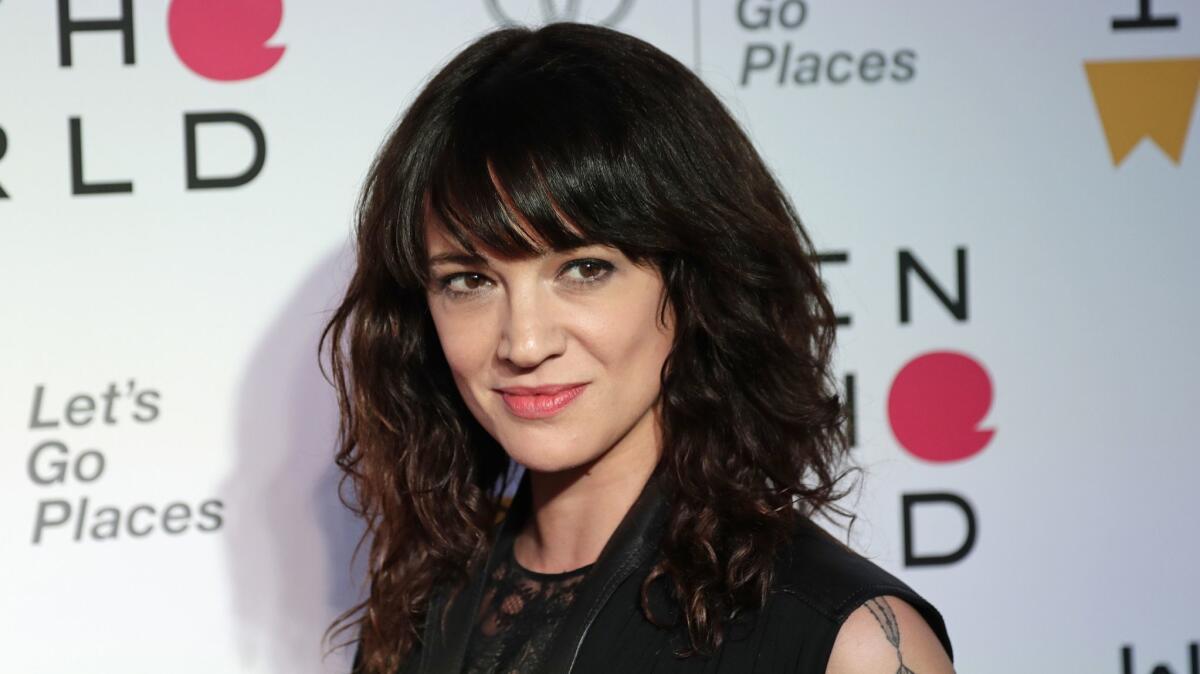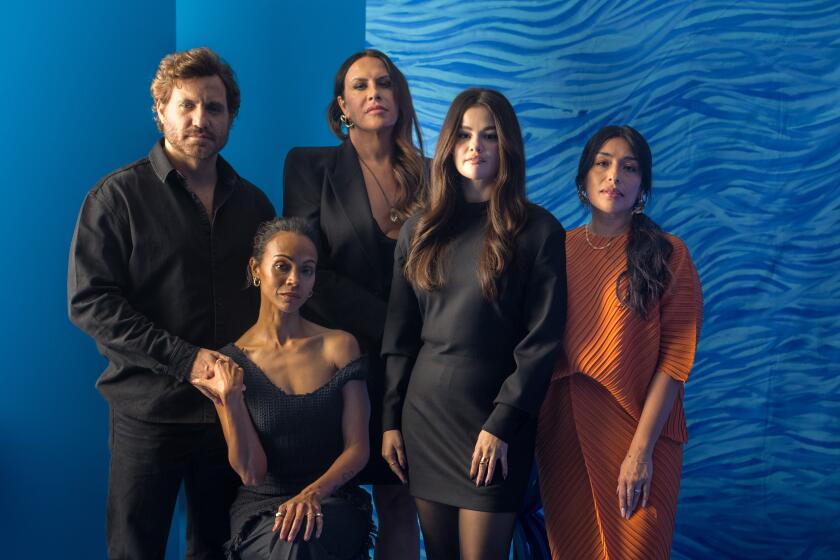Commentary: Rain Dove makes sense of the Asia Argento scandal: ‘All victims deserve justice’

Life would be easier if everything were black and white.
This has been illustrated time and again during the #MeToo movement. Heroes are revealed to be villains. Villains are revealed to be monsters. As people continue to share their stories of abuse, it appears that an entire industry was complicit.
There are no good guys and bad guys anymore. There’s only a town full of deeply flawed people.
And then there’s Asia Argento.
The Italian director and actress was one of the New Yorker’s original accusers in its exposé on Harvey Weinstein and a powerful voice as #MeToo gained momentum.
But Argento’s place in the movement was suddenly questioned and upended last week as accusations surfaced that she had paid $380,000 to settle a sexual assault claim made against her by Jimmy Bennett. The actor accused Argento of sexually assaulting him when he was 17, sparking questions about the validity of #MeToo and the complexities of victimhood.
If Bennett’s accusations are true, doesn’t that negate Argento’s own claims against Weinstein?
Model Rain Dove has emerged as a voice of reason during this brewing scandal, as they were revealed on Monday to have been instrumental in turning over damning text messages from Argento to the police.
“While the conflict may feel murky,” Dove wrote in a statement released to The Times on Wednesday, “the situation is cut and dry.”
They — Dove is gender-nonconforming and prefers non-gendered pronouns — explained that Argento admitted to having sex with a minor and had no intention of being forthcoming about it. That spurred Dove into action.
“All victims deserve justice. Justice can rarely exist without honesty,” they wrote.
Dove advanced the conversation and tackled whether Bennett’s accusations against Argento somehow invalidated Argento’s own allegations against Weinstein.
“I would also like to state that the case between [Weinstein] and Argento is separate from Jimmy Bennett’s case and that Asia deserves the same respect in that case that Jimmy should receive in this one,” they wrote.
“[Argento’s] choice to lie to the NYT does not mean that they are lying about [Weinstein],” Dove continued. “Their accounts for that case should be held separately and fairly.”
It really is that simple.
It seems complicated — illogical, even — that Argento could be both a victim and an abuser. In reality, cyclical abuse has been documented for decades in children raised in abusive households.
You can be both victim and abuser. And being one doesn’t invalidate the other.
What’s actually complicated is how we feel about people who fit into both categories. It’s not so dissimilar to the dissonance at the heart of the debate of the art vs. artist. Can you still enjoy great art made by terrible people? Can you accept that someone has been abused and also has abused others?
It’s the shades of gray that collectively confuse us. There’s a yearning for individuals to be only one thing, and it’s why we constantly chase the myth of the perfect victim.
“All are equal,” Dove wrote, “and their struggles equally valid — we must remember that.”
More to Read
Only good movies
Get the Indie Focus newsletter, Mark Olsen's weekly guide to the world of cinema.
You may occasionally receive promotional content from the Los Angeles Times.











